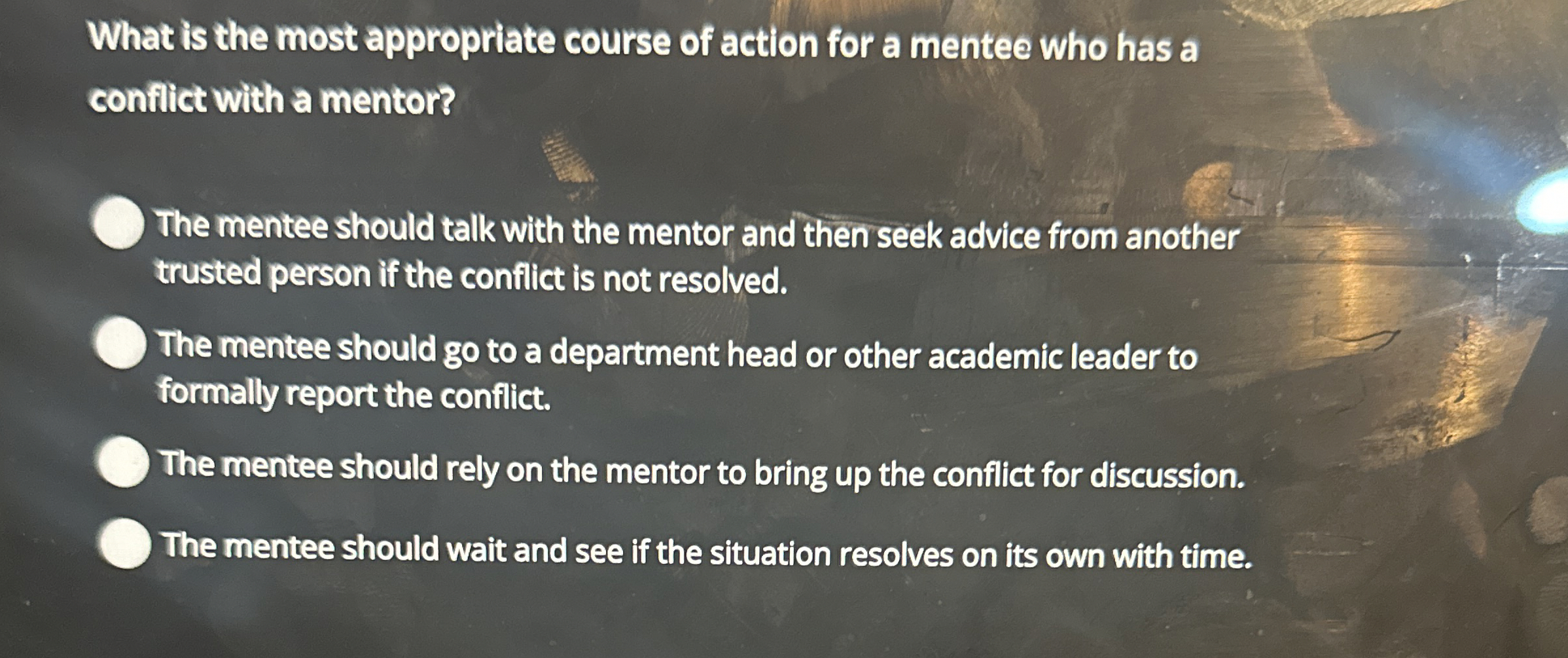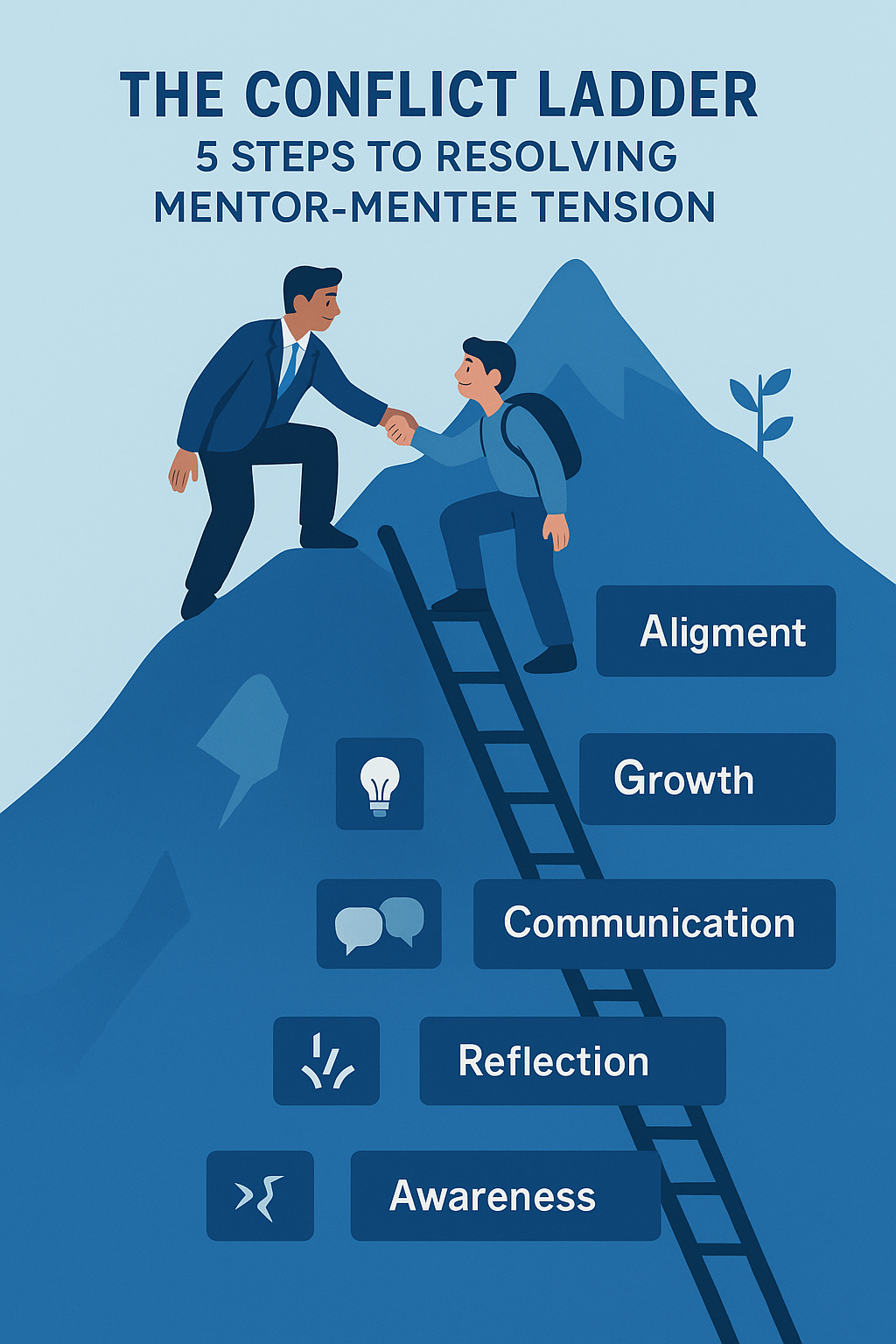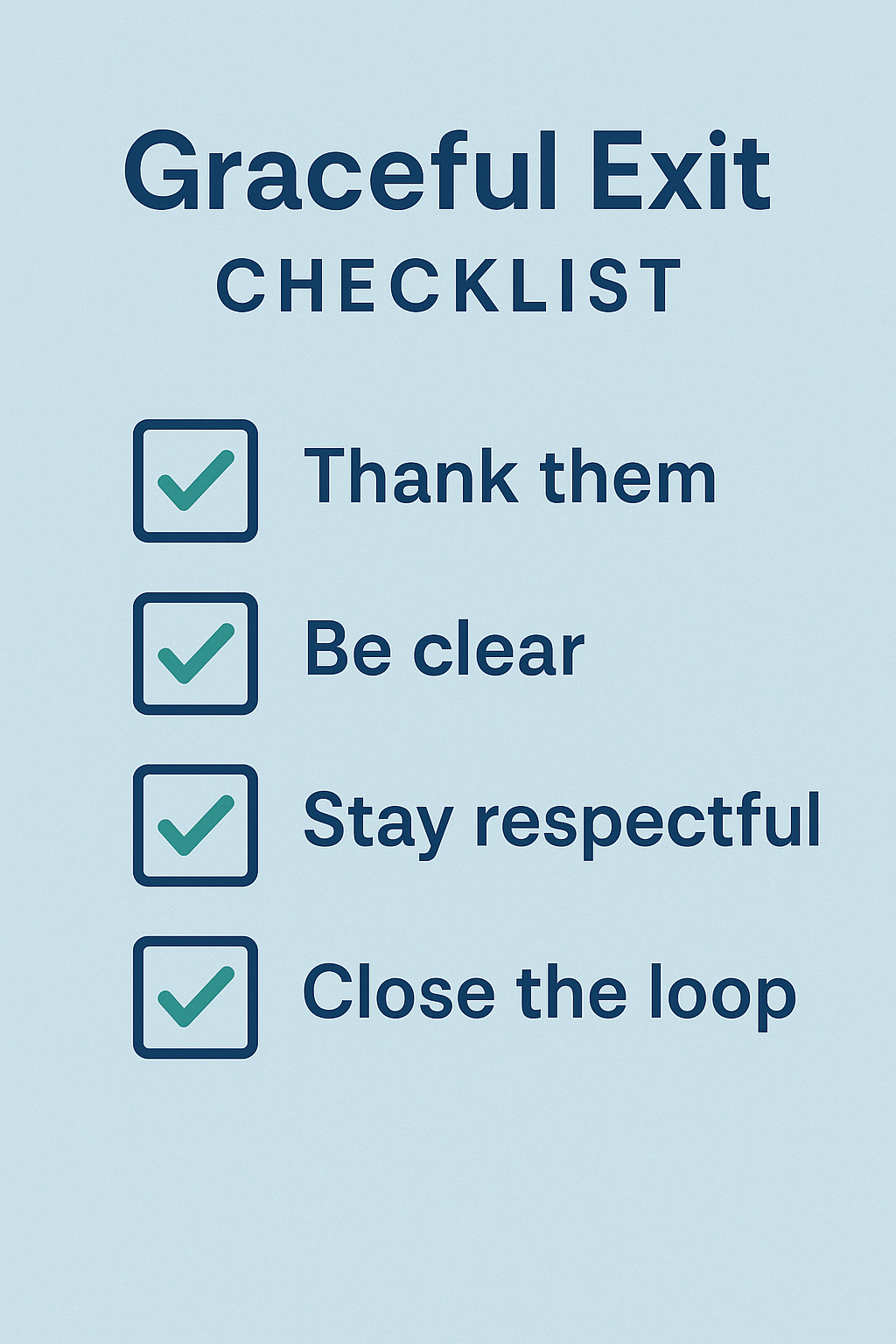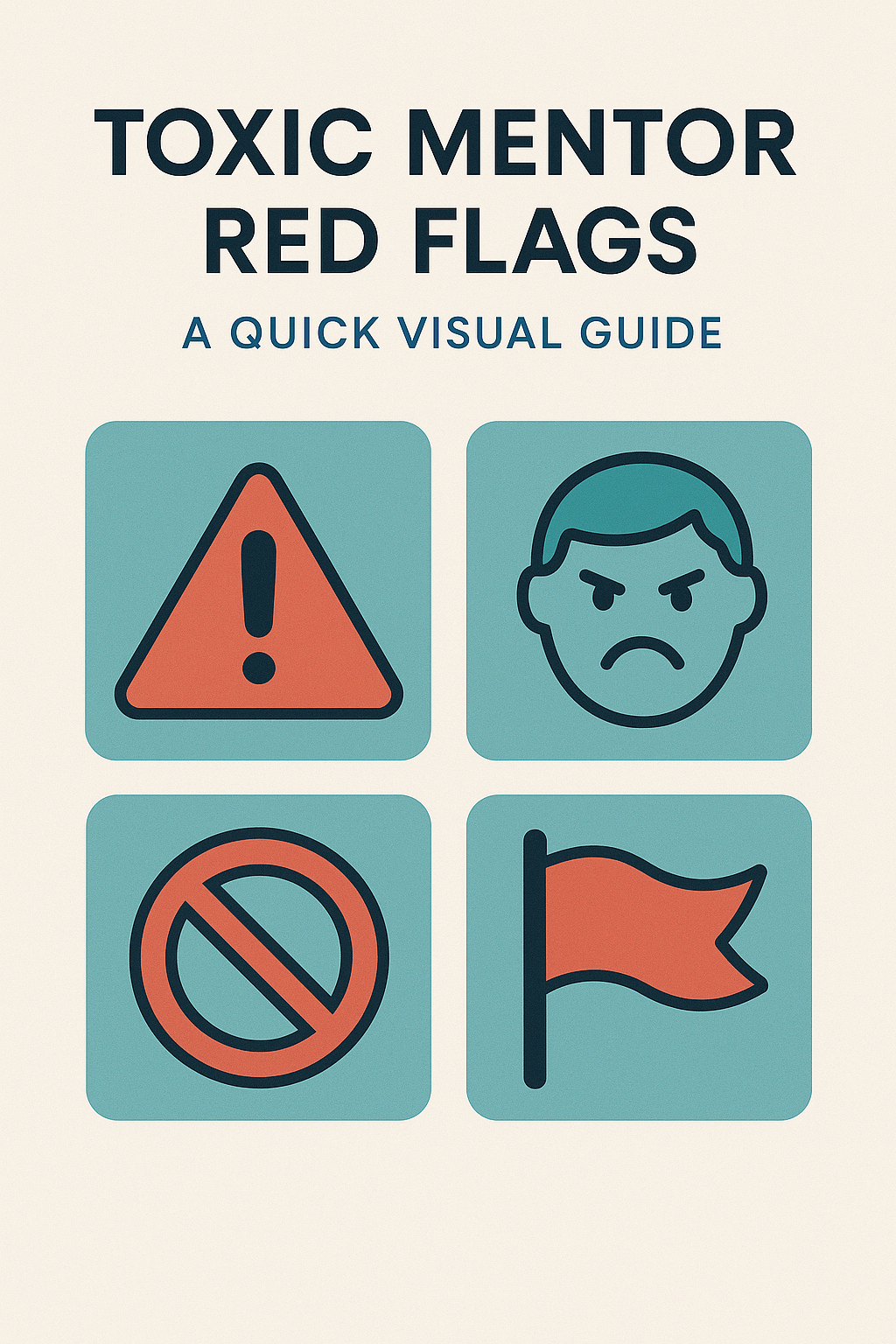
Mentor Conflict? 7 Steps for Mentees to Resolve Disagreements Professionally
To address a conflict with your mentor, start with a private, respectful conversation. If unresolved, seek mediation or consider switching mentors. Always prioritize open communication, emotional intelligence, and professional growth over personal friction.
Understanding the Mentor-Mentee Relationship
A mentor-mentee relationship is more than just guidance—it's a two-way partnership built on mutual trust, shared goals, and open communication. A mentor offers experience, perspective, and support. A mentee contributes curiosity, commitment, and a willingness to grow. When both parties are aligned, this dynamic can accelerate both personal and professional development.
Definition of a Mentor-Mentee Dynamic
At its core, a mentor-mentee relationship is a structured interaction where a more experienced individual (mentor) supports the learning, development, or career journey of a less experienced individual (mentee). Unlike teaching or supervision, mentorship is collaborative, goal-oriented, and often informal in nature.
Whether it’s in academia, corporate settings, or personal development, mentorship is designed to help mentees gain clarity, confidence, and capability through consistent feedback and shared wisdom.
Importance of Alignment in Goals, Values, and Communication
No matter how skilled a mentor may be, misalignment in goals, values, or communication styles can derail the entire relationship. If a mentee seeks emotional support and growth, but the mentor is focused solely on performance metrics, frustration builds. Similarly, mismatched feedback preferences—direct vs. gentle—can cause friction.
That's why successful mentorships start with:
- Clear expectations from both sides
- Agreed-upon goals
- Consistent communication styles
- Regular check-ins to reassess alignment
Taking time to establish these early on avoids future misunderstandings and makes room for healthy, productive dialogue.
Why Conflicts Are More Common Than Expected
Conflicts in mentorships aren't always dramatic — sometimes they creep in quietly. As roles evolve or external stressors enter the picture, even the best mentor-mentee pairs may hit turbulence. And because mentorships are often personal and informal, there's more room for assumptions, unmet expectations, and emotional undercurrents.
Common conflict triggers include:
- Unequal investment of time or effort
- Over-dependence or micromanagement
- Misinterpreted feedback
- Lack of boundaries or professionalism
Recognizing that conflicts are natural, not personal helps mentees navigate them more maturely. What matters most is how you respond and adapt — not just react.
◆“Every great mentorship is built on trust — and tested through conflict.”
For more tips on building focus and emotional awareness in mentorship, check out our guide on How to Improve Concentration
Common Types of Mentor-Mentee Conflicts
Even in the most promising mentorships, conflicts can arise from subtle mismatches or growing misalignments. Understanding the most frequent types of mentor-mentee conflicts helps mentees recognize early warning signs and act constructively — before tension turns into breakdown.

Misaligned Expectations
This is one of the most common root causes. If a mentee expects weekly check-ins but the mentor only offers quarterly advice, or if the mentor pushes toward career goals the mentee doesn’t prioritize, frustration is inevitable.
Signs of misaligned expectations:
- Confusion about meeting frequency or structure
- Differing definitions of success
- Disappointment due to unmet promises or assumptions
Tip: Schedule a goal-alignment session early. Discuss timelines, responsibilities, and feedback preferences upfront.
Personality Clashes or Communication Gaps
Mentors and mentees are human — and sometimes, personalities simply don’t click. Whether it’s a difference in tone, working pace, or feedback style, these can compound over time if not acknowledged.
Common signs:
- Discomfort during conversations
- Passive-aggressive feedback
- Avoidance of interaction
💬 Micro-Strategy: Mirror your mentor’s preferred communication style slightly to build rapport while staying authentic.
Ethical Boundaries or Power Imbalances
While rare, some mentorships may veer into inappropriate territory — emotionally, professionally, or even ethically. If a mentor becomes too controlling, dismissive, or makes you feel obligated, the relationship may be veering off course.
🚩 Red flags to watch for:
- Requests that feel transactional or unethical
- Repeated dismissals of your input or goals
- Undue pressure or guilt-tripping
◆“Mentorship should empower you, not silence you.”
If you're struggling to stay productive amidst these emotional tensions, explore our guide on How to Study Effectively.
The 5-Step Conflict Resolution Framework
When tension surfaces in a mentorship, avoiding it can feel easier — but it often makes things worse. Instead, use this structured 5-step framework to address conflict constructively, preserve the relationship (if possible), and grow through the process.

1. Reflect Before Reacting
Before initiating any difficult conversation, pause and reflect.
Ask yourself:
- What specifically is bothering me?
- Is this a one-off issue or a recurring pattern?
- Am I assuming intent or responding to impact?
🧭 Clarity Check: Journaling or talking to a neutral third party can help frame your perspective before you act.
2. Communicate Your Concerns Calmly
Open the door to honest conversation. Approach your mentor respectfully, ideally in a dedicated session—not over text or in the middle of a busy call.
Use:
- “I noticed that…” instead of “You always…”
- “Can we revisit expectations around ___?”
- “I value our relationship, so I wanted to share…”
🗣️ Sample Script:
◆“I really appreciate your mentorship and want to continue learning from you. I’ve been feeling a bit unsure about our check-in rhythm lately — could we talk about what works best for both of us going forward?”
3. Seek Common Ground
After sharing your side, make space to hear theirs. Many mentors aren’t even aware there’s a problem. Focus on shared values and goals rather than who's "right."
Look for:
- Alignment on your long-term learning objectives
- Compromises on communication preferences
- Resetting expectations collaboratively
🧩 Example Line:
◆“It seems like we both want to make this work — maybe we just need to re-sync our styles a bit.”
4. Get Help from a Trusted Third Party
If things aren’t improving or conversations feel unsafe, involve someone neutral:
- A program coordinator
- Academic advisor
- HR representative
- Peer support facilitator
Third-party involvement can offer mediation and perspective while keeping the tone professional.
📢 Pro Tip: Document your interactions respectfully — not to “collect receipts,” but to ensure clarity and context.
5. Know When to Walk Away Respectfully
If efforts to resolve the issue fail, it may be time to part ways. That’s okay. The goal of mentorship is growth — not dependency.
How to exit gracefully:
- Express gratitude for what you’ve learned
- Avoid blame or confrontation
- Keep doors open when possible
✍️ Closing Sample:
◆“Thank you again for your time and support so far. I think at this point, I might benefit from a mentorship style that better matches my current learning goals. I really appreciate everything you’ve shared with me.”
Want to create a strong, well-structured presentation on this framework? Learn how in our guide: How Students Can Make a Presentation with AI
When Conflicts Cannot Be Resolved
Sometimes, despite your best efforts to reflect, communicate, and compromise, a mentor-mentee relationship reaches a point of no return. And that’s okay. Not all mentorships are meant to last forever — what matters is how you exit and what you learn in the process.
Signs It’s Time to End the Relationship
If any of the following apply, it may be time to step away:
- Trust is broken and cannot be rebuilt
- The mentor no longer shows interest or makes time
- You feel consistently disrespected, dismissed, or belittled
- The relationship creates more stress than growth
- You’ve tried to resolve things, but nothing changes
Quick Insight: Recognizing that a mentorship isn’t working is not a failure — it’s self-awareness.
How to Exit Professionally
Ending the relationship doesn’t have to be awkward or emotional. A calm, respectful closure preserves your reputation and leaves the door open for future opportunities.
Steps to take:
- Schedule a final conversation or send a well-crafted message
- Acknowledge their time and impact (even if limited)
- Express your decision clearly without defensiveness
- Offer to stay in touch if appropriate
📄 Sample Message Template:
◆Hi [Mentor’s Name],I wanted to thank you sincerely for your time and guidance. As I reflect on my learning goals, I feel that exploring a different mentorship dynamic may better support my current path. I’ve really valued our interactions and hope we can keep in touch in the future.

Need help staying composed during emotionally tough moments? Read our practical tips on Studying 101: Study Smarter, Not Harder
Real-Life Scenarios and Case Studies
Theories are helpful — but real stories bring learning to life. Here are three mentor-mentee conflict scenarios based on common academic and career paths. These examples show how others navigated tricky dynamics and either turned the situation around or moved forward with confidence.
Case 1: Micromanagement Masked as Mentorship
Situation:
Riya, a data science student, had a mentor who checked in excessively and wanted to approve every project detail. While she appreciated the attention early on, over time she felt stifled and second-guessed.
Conflict Trigger:
Lack of autonomy, over-controlling behavior
Resolution Path:
Riya scheduled a candid chat and shared her need for space to explore independently. The mentor hadn’t realized the impact and agreed to step back.
🧩 Lesson: Even well-intentioned mentors can become overbearing. Clarity + courage = change.
Want to level up your skills independently like Riya? Explore our Data Science Course Guide
Case 2: Mismatched Long-Term Vision
Situation:
Aditya, a commerce student interested in digital marketing, found himself with a mentor focused on traditional finance careers. Their conversations felt misaligned and increasingly frustrating.
Conflict Trigger:
Different career priorities, future goals misaligned
Resolution Path:
Aditya respectfully thanked the mentor and asked for a referral to someone better aligned. His mentor was surprisingly supportive.
◆“Just because they’re not the right mentor for you — doesn’t mean they’re not a great mentor.”
Interested in pivoting like Aditya? Check out Top Digital Marketing Courses
Case 3: Toxic Feedback Loop
Situation:
Sara, preparing for competitive board exams, had a mentor who used constant criticism disguised as “tough love.” It affected her confidence and mental health.
Conflict Trigger:
Negative reinforcement, lack of psychological safety
Resolution Path:
Sara documented instances, then sought support from her program coordinator. She was reassigned a new mentor with a more encouraging approach.
Red Flag Reminder: Tough feedback should challenge you — not crush you.
Struggling with confidence? These Study Tips for Class 12 Board Exams can help you bounce back stronger.
Preventing Conflicts Before They Start
The best way to handle mentor-mentee conflict? Avoid it altogether. Many issues arise not from malice, but from a lack of clarity. By being intentional from day one, mentees can set the tone for a healthy, respectful, and productive relationship.
Set Clear Expectations Early
The first conversation matters. Don’t wait for things to go wrong — align from the start.
📝 Key discussion points to cover in your first meeting:
- How often will we meet?
- What goals are we working toward?
- What does “success” look like?
- How do we prefer to give and receive feedback?
Bonus Tip: Draft a simple mentorship agreement (informal is fine!) to refer back to.
Define Communication Styles and Boundaries
Everyone communicates differently — what feels direct to one person might feel harsh to another. Set norms for tone, tools, and turnaround times.
Ask your mentor:
- Do you prefer email or chat?
- Are there any off-limits hours?
- How do you usually give feedback?
Creating shared rules reduces misunderstandings later on.
Align on Values and Deal-Breakers
Values aren’t always obvious until they’re violated. Take time to discuss:
- What motivates you both?
- Are you open to difficult conversations?
- What behaviors would be a deal-breaker?
🔒 Trust Foundation: Respecting each other’s time, energy, and honesty is non-negotiable.
◆“Great mentorships aren’t just productive — they’re psychologically safe.”
Maintain Check-Ins and Reassessments
Even strong mentorships evolve. Schedule periodic reflections to see if the dynamic still works.
📅 Every 3 months, ask:
- Are we still aligned?
- What should we adjust moving forward?
This shows maturity — and keeps both sides accountable.
Looking to prepare better for these key conversations? Start with our foundational guide on How to Improve Concentration
How to Handle a Toxic Mentor
Not all mentorships are healthy — and unfortunately, not all mentors act with integrity. If you’re feeling drained, anxious, or belittled after every interaction, you might be dealing with a toxic mentor. Here’s how to recognize the signs and protect yourself without burning bridges.
Warning Signs of a Toxic Mentor
If your mentor regularly does any of the following, pay attention:
- Undermines your confidence or dismisses your ideas
- Takes credit for your work or achievements
- Uses guilt, manipulation, or passive-aggressive language
- Violates boundaries (time, emotional space, or ethics)
- Creates fear around feedback or growth
Toxic behavior often hides behind phrases like:
◆“I’m just being honest.”“You’re too sensitive.”“This is how the real world works.”
Reminder: Constructive feedback should make you better — not smaller.
Set Boundaries and Document Behavior
Start by asserting your limits:
- Limit how much time you engage if it’s emotionally draining
- Don’t allow guilt-tripping or coercion into extra tasks
- Politely decline calls/messages outside agreed times
Documentation Tip: Keep a private log of concerning interactions. Include dates, quotes, and your emotional response. This creates a safety net if you need to escalate later.
Seek Support or Escalate Safely
Toxic mentorship shouldn’t be tolerated — but it also needs to be handled carefully.
Who you can talk to:
- Program coordinators
- HR or department leads
- School/university advisors
- A more senior mentor or peer
Important: Frame your concern around your learning goals and well-being — not as a complaint about the person.
Plan Your Exit If Needed
If the situation doesn’t improve or worsens, you’re allowed to walk away — and you don’t need to apologize for protecting your mental health.
How to exit cleanly:
- Thank them for their time
- Mention that your learning needs have shifted
- Don’t engage in blame or back-and-forth
Insight: “Leaving a toxic mentorship isn’t giving up — it’s taking your growth back.”

For more tips on building resilience and bouncing back academically, read: How to Pass Exams Without Studying — yes, really.
Long-Term Lessons from a Broken Mentorship
Just because a mentorship didn’t work out doesn’t mean it was a waste of time. In fact, many successful students and professionals point to challenging mentorships as key turning points in their journey. If you're emerging from conflict or separation, here’s what you can take with you.
Learn to Advocate for Yourself
One of the biggest hidden wins of navigating mentorship conflict is learning how to speak up for your needs. Whether it’s setting boundaries, requesting changes, or exiting gracefully, you’ve practiced self-advocacy — a skill that will serve you far beyond this experience.
💬 Reflection Prompt:
◆“Where did I stand up for myself — and how did that feel?”
Clarify What You Want in a Mentor (or Mentee)
A broken mentorship often shines a spotlight on what you truly value. Was it empathy? Structure? Clear communication? Take notes — you’ll be more selective and intentional the next time.
🧠 Pro Tip: Use this clarity when choosing future mentors or even becoming one yourself.
Redefine Success in Mentorship
Success doesn’t always mean “happily ever after.” It can also mean:
- Learning how you work best
- Identifying what you don’t want
- Gaining resilience under pressure
- Growing your emotional intelligence
◆“Not every mentor is forever. But every experience can shape the kind of leader you’ll become.”
Use It as a Springboard, Not a Setback
Instead of framing the conflict as failure, reframe it as fieldwork for your career and character. Share your experience (strategically) in essays, interviews, or peer mentoring opportunities.
📢 Example:
◆“That experience helped me realize how important mentorship alignment is. Now, I always start relationships by clarifying expectations and communication style.”
Want to strengthen your foundation moving forward? Read What Is Post-Secondary Education? to explore how structured growth environments build better learners and leaders.
Conclusion
Mentorships, like any meaningful relationship, are rarely perfect. They stretch us, challenge us, and occasionally disappoint us. But even when things go off course, conflict doesn’t mean failure — it’s often just a detour that reveals something deeper about your goals, values, and voice.
If you’ve had a tough experience with a mentor:
- Know that you’re not alone
- Understand that walking away is sometimes the most professional choice
- Trust that this will make your next mentorship stronger
◆“Every mentorship — even a broken one — is part of your story. It’s not about avoiding conflict, but growing through it.”
Frequently Asked Questions
What is the most appropriate course of action for a mentee who has a conflict with a mentor?
Start by reflecting on the root of the issue. Then communicate your concerns calmly and respectfully. If things don’t improve, consider involving a neutral third party. As a last resort, exit the relationship professionally — without burning bridges.
What action should be taken if problems between a mentor and mentee cannot be resolved?
If direct communication doesn’t help, escalate the issue through formal channels like HR, academic advisors, or program coordinators. Be clear, respectful, and solution-focused. If no change occurs, it’s appropriate to request reassignment or end the relationship.
How do you deal with a mentor-mentee mismatch?
Identify the mismatch early — whether it’s values, goals, or communication. Communicate openly, suggest a pivot if needed, and ask to be paired with someone who better aligns with your direction. Mismatches are common and fixable.
What are the common conflicts between mentors and mentees?
- Misaligned expectations
- Personality clashes
- Poor communication
- Lack of feedback
- Over-control or micromanagement
- Power imbalances or ethical concerns
Recognizing the specific type of conflict is key to solving it.
How do you structure a healthy mentor-mentee relationship?
- Set clear goals and timelines early on
- Decide how often you’ll meet and how you’ll communicate
- Establish mutual boundaries and expectations
- Check in regularly to reassess progress and satisfaction
How Students Can Make a Presentation with AI – a helpful tool for building clarity in your first mentor meeting.
How to deal with a toxic mentor?
- Document concerning behavior discreetly
- Set firm boundaries (time, tone, topics)
- Seek support from a neutral authority
- Exit the relationship professionally if it becomes emotionally or ethically unsafe
Reminder: Protect your peace. Mentorship should empower you — not exhaust you.
What can I learn from a mentorship that didn’t work out?
Plenty. You’ll gain self-awareness, boundary-setting skills, emotional resilience, and clarity on what kind of mentorship best suits your growth. Not every mentor is forever — but every experience builds you up.
Studying 101: Study Smarter, Not Harder – use it to shift from burnout to bounce-back.



